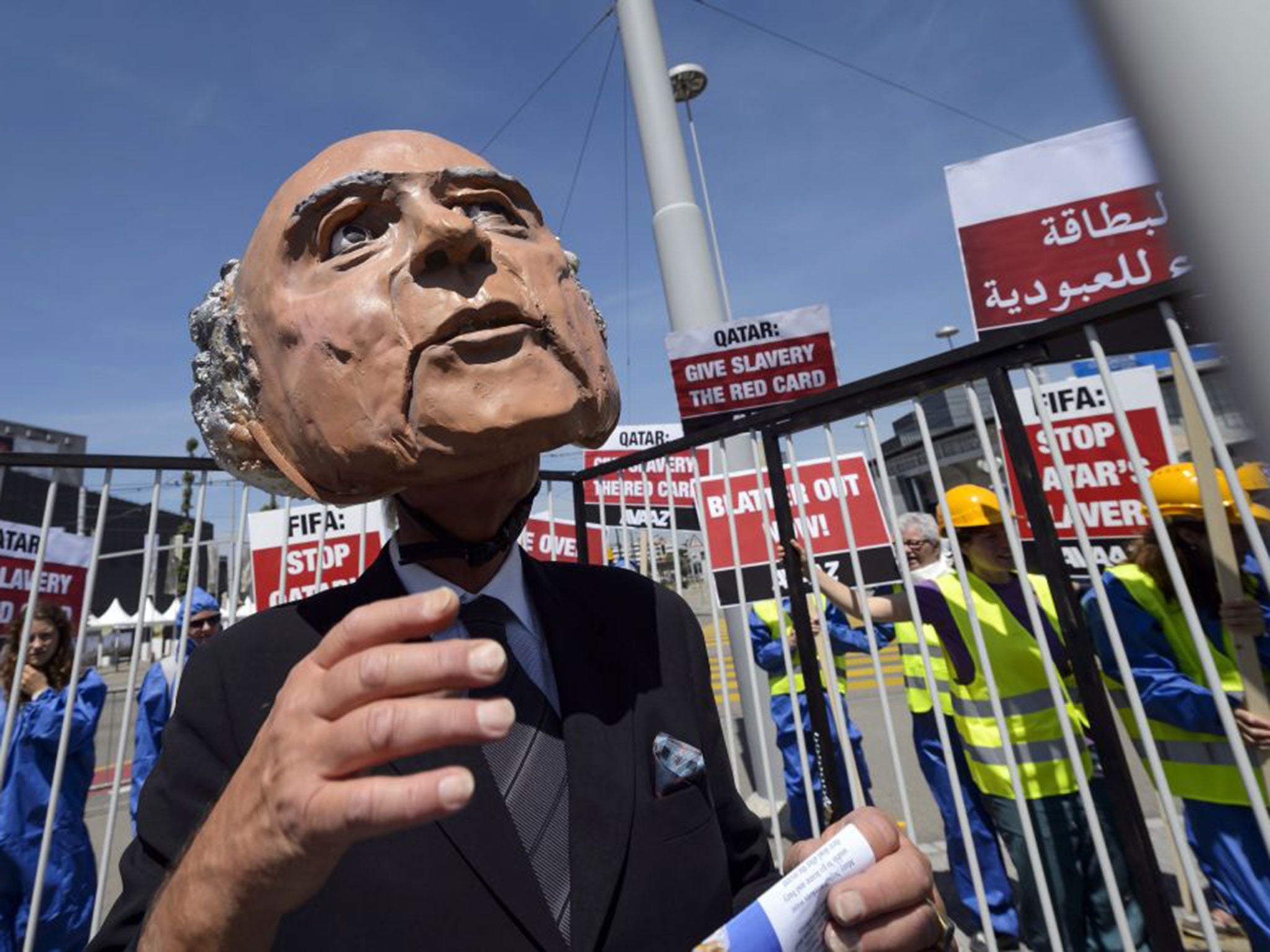Fifa corruption: How Sepp Blatter buys support by investing Fifa's millions in Africa
Blatter has for decades spoken of his mission to bring a World Cup to Africa, which he finally achieved in 2010

Fifa’s mission, which it shares with every sports governing body, is to expand the game it administers. That is hard to achieve in a country incapable of watching its own national team on television.
Such was the case in Mauritania, a large West African nation with a population of three and a half million, before Fifa’s development money arrived in 2013. The money was closely followed by a visit from the Fifa president, Sepp Blatter. The studios were quickly built.
“We now have a TV production unit, one of the first of its kind in Africa,” explained the president of the Mauritanian Football Association, Ahmed Ould Yahya, at the time. “We’ve signed a contract with the national broadcasting company and we show matches every week. That is really changing the image of the game in the country.”
Before the money arrived, Mauritanian football had effectively collapsed. It had never played in an international tournament, and fallen out of the world rankings. It is still struggling, but now it also has pitches and facilities, all paid for by Fifa. Mauritania has never played in a World Cup, but has had its share of the profits. All 209 Fifa member nations receive an equal share of the income from the tournament in Brazil in 2014, around $1.2m (£783,000).
Last time around, this amount was even higher. Blatter has for decades spoken of his mission to bring a World Cup to Africa, which he finally achieved in 2010. “When we decided to hold the World Cup in Africa, we encountered objections from a lot of people who said it would be a failure,” the President said in 2013, outside the newly constructed football centre in the Mauritanian capital, Nouakchott. “Instead, South Africa 2010 was an unprecedented success and that allowed us to pay out a bonus to all the member associations.”
This money has prompted many a genuine football revolution in the developing world. But like all aid money, much of it has been badly audited and some of it, undoubtedly, purloined. For President Blatter, it hardly matters. Both these outcomes buy loyalty.
Many of these Fifa-funded national football centres bear the name of the country’s federation chief who brought them there. (Uruguay and Brazil’s centres carry the names of Nicolas Leoz and Jose Maria Marin, two men indicted by the US on Wednesday.) And it is they who must decide, every four years, whether to vote for Blatter. Other candidates in this election, notably Luis Figo, pledged to return even more money to the national associations of developing nations, and increase the number of teams competing in the World Cup to 48.
As Manuel Nascimento-Lopes, Fifa’s man in Guinea Bissau, said: “People are always trying to knock Blatter. Africa will vote for Mr Blatter and I will follow that. It’s not all about the major European football countries. We are going to vote for Blatter. How do we know anyone else would be any better?”
Subscribe to Independent Premium to bookmark this article
Want to bookmark your favourite articles and stories to read or reference later? Start your Independent Premium subscription today.

Join our commenting forum
Join thought-provoking conversations, follow other Independent readers and see their replies